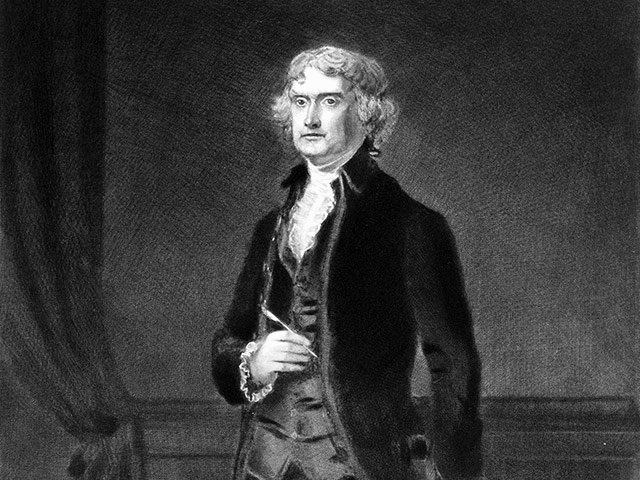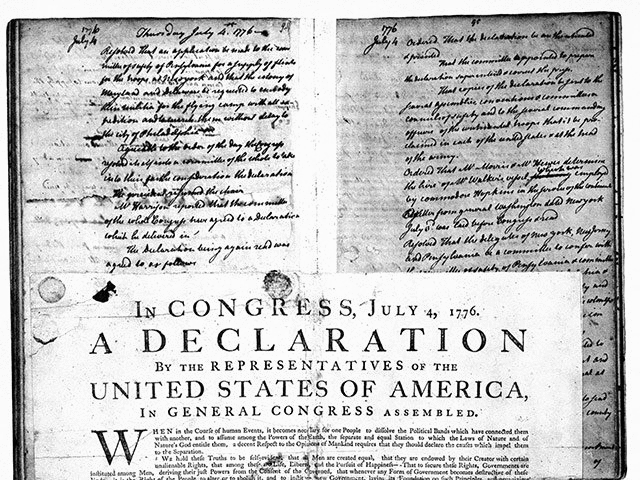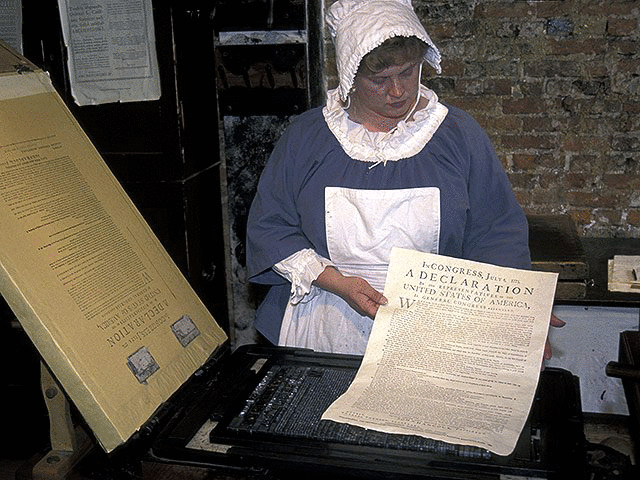Lawyers questioned the legitimacy of the US Declaration of Independence

American and British lawyers are arguing about the legality of the Declaration of Independence of the United States, adopted on July 4, 1776 by members of the Second Continental Congress, who were unhappy with the royal authority. The debate took place in the state of Philadelphia, where it was signed historical document of sovereignty. The British claim that the Declaration of Independence, created by Thomas Jefferson, is illegitimate, it was "a blow to universal freedom, a call to war and the cornerstone for the foundation of a new empire," writes the BBC.
The discussion, designed to find out whether the American colonists really had legal grounds for declaring independence, was organized by the American Bar Corporation and the Greev School - one of four English barrister schools.

For American lawyers, the answer to this question is quite simple, it is consonant with the Russian proverb "they have found a straw in another's eye, but they do not notice it in their log." The Americans reminded the British that they also "used the Declaration of Rights to overthrow King James II, and all these acts were considered fully justified and legal."
The British, however, do not consider “separation” a legal instrument through which internal disputes can be settled. “What will happen if Texas suddenly decides to secede from the United States?”, British lawyers asked.
Americans fended off: in 1770's, the moment came when people whose “natural rights” were violated, no longer wanted to be loyal to “tyranny”.
But the complaints listed in the Declaration of Independence were too trivial to justify a split, barristers from England said. The main one - no taxation without representation - no more than the desire of the colonists not to pay for their protection from the attack of France, which the British military carried out for seven years.
Lawyers from the United States brought their counter-argument: the legitimacy of the Declaration is confirmed by the fact that some of its points are reflected in the Charter of the United Nations.
Voting at the end of the discussion showed that the majority of participants in the discussion recognize the legitimacy of the Declaration.
Fight for freedom
In 1607, the first English colony of Virginia (virgin, eng. - “virgin”) appeared in North America, named after the “virgin queen” Elizabeth I. Over the course of 75 years, 12 colonies emerged - New Hampshire, Massachusetts, Rod Island, Connecticut, New York, New Jersey, Pennsylvania, Delaware, Maryland, North Carolina, South Carolina and Georgia.
From the middle of the 17th century, Great Britain tried to establish complete control over the economic operations of the American colonies, implementing a scheme in which all industrial goods (from metal buttons to fishing vessels) were imported into colonies from the metropolis in exchange for raw materials and agricultural goods. Under this scheme, English entrepreneurs, like the British government, were extremely disinterested in the development of industry in the colonies, as well as in the trade of the colonies with anyone other than the metropolis.

Meanwhile, the American industry has achieved significant success. Especially American industrialists succeeded in building ships, which allowed them to quickly establish trade with the West Indies and thereby find a market for domestic manufactory. The English Parliament considered these successes so threatening that in 1750 he passed a law prohibiting the construction of rolling mills and iron-cutting workshops in the colonies. The foreign trade of the colonies was also harassed.
By the second half of the 18th century, the population of the American colonies became more and more distinct as a community of people who were in confrontation with the metropolis. Oil was added to the fire by the Stamp Duty Act, which hit hard on American publishers. American industrialists and merchants, who were extremely dissatisfied with the colonial policy of the metropolis, also showed discontent. The presence of British troops (remaining there after a seven-year war) on the territory of the colonies also caused discontent among the colonists. Increasingly, there were demands for independence.
Feeling the seriousness of the situation, both the UK and the American bourgeoisie, were looking for a solution that would satisfy the interests of both the metropolis and the colonies. So in 1754, on the initiative of Benjamin Franklin, a project was launched to create a union of North American colonies with its own government, but led by the president appointed by the British king. Although the project did not provide for the complete independence of the colonies, it caused an extremely negative reaction from the British government. All this became the prerequisites of the War of Independence of the United States.
Shortly after the outbreak of the war in the first days of June 1775, prominent lawyer Thomas Jefferson was elected to the Second Continental Congress, who met in Philadelphia. When Congress in June 1776 considered a resolution declaring independence, it was decided to create a committee to prepare the accompanying declaration. Jefferson was elected as its head, in addition to him, the committee included four more people: John Adams, Benjamin Franklin, Roger Sherman and Robert Livingston.
At one of the committee meetings, the other members unanimously asked Jefferson to write the initial version of the declaration himself, since Jefferson was well known as a writer. In consultation with the rest of the committee, Jefferson wrote the first version of the declaration, using as a model, in particular, the Virginia Human Rights Declaration, written by George Mason.
After making some changes, the draft was submitted to the 28 Congress on June 1776 of the year. July 2 Congress, after voting for independence, began to consider the Declaration. After a two-day debate, almost a quarter of the text was removed from the Declaration, including a criticism of slavery and the slave trade, which outraged Jefferson, who opposed slavery, despite the fact that he himself used slave labor on his plantations. However, the resulting version was approved by the 4 Congress on July 1776 of the year. July 4 is now the main US holiday, Independence Day, and the preamble of the Declaration, which brought the most prominence to Jefferson, is the most famous text on human rights.
Information